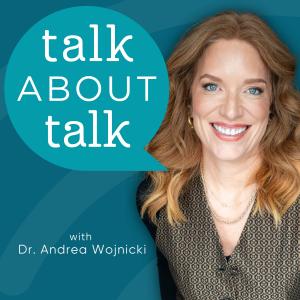Talk About Talk - Communication Skills Training

#21(S2)TRUST with Per Se Brand Experience President Baron Manett
How do you know whether to trust someone? How do you communicate that you are trustworthy? Trust is imperative. If you don’t have trust, you have nothing. And that goes for both interpersonal relationships as well as for brands. Baron Manett, marketer and founder of Per Se Brand Experience shares his insights on the significance of trust. SHOWNOTES Contents * 5 Key Learnings * References & Links * Andrea’s Commentary * Interview Transcript * Conclusion Five Key Learnings 1.Trust is defined as confidence in or dependence on a person or entity. * The context for trust is always future oriented. * The tendency to trust others is a strong predictor of subjective well-being. * We are more likely to trust authority figures, entities that are trusted by others, people who are similar to ourselves, and established brands 2.Trust is critical for both interpersonal relationships, as well as our relationships with brands. * Trust is indispensable in friendship, love, and families, never mind in politics and business! * Trust also relates to influence and persuasion. * A brand is a promise. A brand’s actions (it’s quality, performance, it’s corporate partnerships and affiliations) are the proof points that support the promise. 3.Trust is asymmetrical. * It takes a lot of work to establish trust, and even more to build it back after it has been violated. * Again, trust is very similar for brands and for human relationships. * Baron Manett on brand transgressions: Trust is “one of those things where it takes it takes a long time to build it, it takes a nanosecond to lose it. And it’s a lot more expensive to have to rebuild it.” * Baron reminds us to use our manners: please and thank you and when there’s a transgression, real apologies. 4.Three elements of trust: authenticity, logic, and empathy. * Based on HBS Professor Frances Frei’s trust framework. Chances are, if you don’t trust someone, they may be inauthentic, they may be illogical, or they may lack empathy and not be acting in your best interests. 5.Trust and body language – three things: posture, hands, and eyes. * Posture: sit up straight. Take up lots of space. Don’t cross your arms or your legs. Do lean in towards the other person and mirror them. * Hands: keep them visible. * Eyes. The eyes are critical. There’s eye contact, there’s smiling with your eyes. And watch the eyebrows. There’s always something going on when the eyebrows are raised. References & Links Baron Manett, Per Se Brand Experience, & Ensemble * Baron on LinkedIn – https://www.linkedin.com/in/baronmanett/ * Per Se Brand Experience – https://www.psbx.co/ * Ensemble – https://www.ensembleco.com/ * Recommendations: * Broken Record podcast – https://brokenrecordpodcast.com/ * Non-Obvious by Rohit Bhargava – * BOOK – https://amzn.to/2RlIu9J * BLOG – https://www.rohitbhargava.com/blog * Faris & Rosie – http://geniussteals.co/ TRUST Resources & References * TEDTalks on Trust – * HBS professor Frances Frei –






 Visit Podcast Website
Visit Podcast Website RSS Podcast Feed
RSS Podcast Feed Subscribe
Subscribe
 Add to MyCast
Add to MyCast